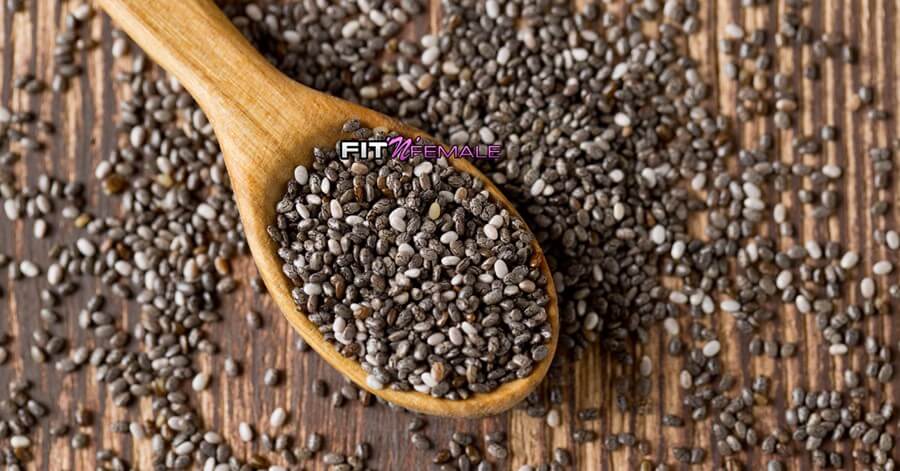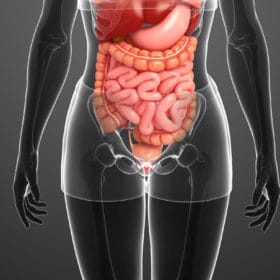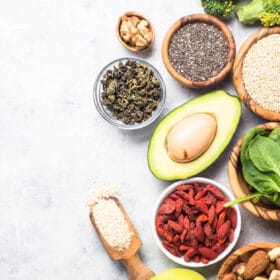The idea of consuming particularly nutrient-rich and versatile foods is admittedly not new, but is still implemented far too rarely. To be honest, there is hardly anything more effective than feeding the organism foods that do not predominantly provide only one specific macro- or micronutrient, but rather a whole range of nutrients that help your body to develop in the best possible way in terms of appearance and performance. One of these particular foods that serves this purpose very well is the seed of a plant native to South America, which was used centuries ago by the indigenous people and gave the armies of the Aztecs the strength to defeat their neighbors on the battlefield. The talk is of Chia seeds. Now, of course, you should not go to war, but with the help of the power from these power seeds you will be much better in your campaign against the inner pig.
1 - Chia seeds contain a lot of fiber
One of the greatest nutritional benefits of seeds is their high fiber content, which outshines even some classic fiber sources. A single teaspoon already contains around 5 grams of fiber, which is especially useful for you if you have problems meeting your daily fiber requirements. The fact that this undertaking is actually not necessarily easy for many exercisers is proven by the requirement recommendation of the US Department of Health an Human Services, which stipulates a daily intake of 38 grams for men and 25 grams for women. Dietary fiber not only helps to maintain the health of your intestinal flora, thus promoting optimized digestion, but also ensures a longer-lasting feeling of satiety. This is due to the fact that dietary fiber swells in the gastrointestinal tract, creating a feeling of fullness that makes you eat less. In addition, according to scientific evidence, fiber consumption is associated with reducing the risk of suffering a heart attack. If that's not motivation to give the little seeds a chance?
2 - Take advantage of the antioxidants it contains
In addition to fiber, chia seeds also contain other important micronutrients such as antioxidants, to which numerous beneficial properties are attributed, especially from a medical perspective. For example, a study published in the Journal of Chromatography proves that antioxidants prevent damage to body cells by ensuring that cell-damaging free radicals are eliminated before they can spread harm. Conversely, however, it should also be clear that antioxidants cannot completely take care of all cellular pests. Nevertheless, the intake of important antioxidants also reduces the risk of contracting numerous chronic ailments. Since heavy physical work in particular can promote the formation of free radicals, there is therefore little better prevention than promoting the consumption of antioxidants. So these particular seeds offer an excellent source in this regard.
3 - The seeds are a high quality protein supplier
It is now an open secret that an adequate protein intake is essential both for building muscle and for reducing the body fat percentage. Instead of the pure quantity, however, the quality of the ingested protein should obviously be in focus. Chia seeds surprisingly fulfill this quality feature, which is not necessarily the case with vegetable proteins. What makes the seeds so special? Clearly the fact that it is a complete protein, which means nothing more than that all nine essential amino acids are contained in it. The fact that a heaping teaspoon alone already contains three grams of protein also makes the seeds an actually substantial protein supplier, with which you can cover part of your daily needs. This is especially true if you avoid animal sources of protein.
4 - The full load of omega 3 fatty acids
One property that the chia plant seed has over other foods is its concentration of omega 3 fatty acids. In particular, alpha-linolenic acid (ALA for short) stands out in this respect, especially since plant protein sources are usually not particularly rich in omega 3 fats. Even though alpha-linolenic acid is not as potent as longer-chain omega fatty acids found primarily in fatty seafood, it still offers you some essential health benefits. In this regard, a recent study published in the American Journal of Clinical Nutrition shows that people who consume more ALA and have it in their fat stores are significantly less prone to insulin resistance. This is interesting precisely because insulin resistance is one of the main risk factors for the development of cardiovascular disease, diabetes and severe obesity. Supplementary studies in the European Journal of Clinical Nutrition support the potentially positive influence of seeds on blood glucose control.
5 - Use the power of minerals
Chia seeds are an excellent source of important minerals such as iron, calcium, magnesium and manganese, among others. Just one teaspoon covers 31 percent of the daily requirement of magnesium. Magnesium and manganese in particular have a much greater impact on your performance than you might think. Magnesium plays a decisive role in numerous enzymatic reactions, including those that enable the contraction of muscles or are responsible for protein synthesis. In addition, sufficient magnesium consumption promotes sleep quality, which in turn has a positive effect on the ability to regenerate. Manganese, on the other hand, is particularly important from a metabolic point of view because the mineral is involved in blood sugar control and is also responsible for the optimal functioning of protein and carbohydrate metabolism. In this respect, endurance athletes in particular benefit from improved gluconeogenesis, in the context of which carbohydrate stores are replenished after an intense workout.
Where should I start?
The advantages of the small but no less powerful seeds are therefore obvious. Since all beginnings are difficult, we would like to give you a suggestion on how you can profitably integrate the seeds into your nutritional concept. To save effort, you can simply process the chia seeds in a classic porridge, which you can of course consume both for breakfast and immediately after training. The seeds of the chia plant are not only very tasty, but also add a good portion of healthy micronutrients to your meal.
Recipe - Raspberry Peanut Butter Porridge
Ingredients:
- 60 grams of tender oatmeal
- 1 scoop vanilla protein powder
- 2 teaspoon chia seeds
- ¼ teaspoon cinnamon
- 100 milliliters low fat milk
- 1 teaspoon peanut butter
- 30 grams fresh raspberries
- ¼ teaspoon vanilla extract
Preparation:
1. take a big jar and fill it with chia seeds, oatmeal, cinnamon and protein powder.
Now pour the milk over it and add the vanilla extract.
3. spread the peanut butter on top and place the fresh raspberries on top.
4. now mix the whole and seal the canning jar.
Finally, the mixture should rest in the refrigerator for at least six hours.
Nutritional values per serving:
Carbohydrates: 47 grams
Protein: 30 gram
Fat: 15 Gram
Dietary fiber: 11 grams
Caloric value: 436 kilocalories




